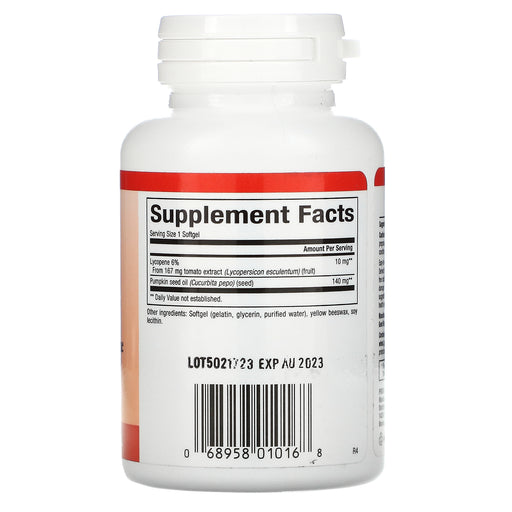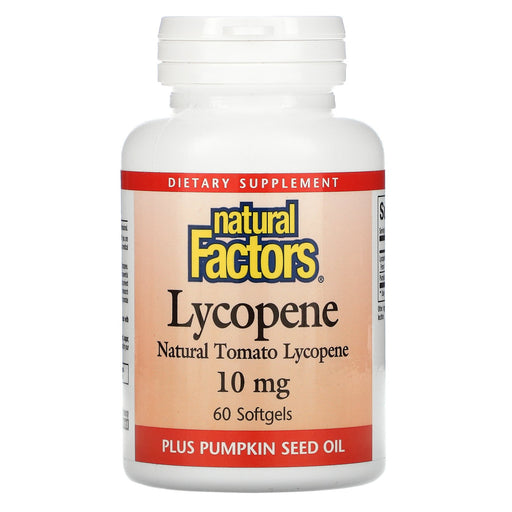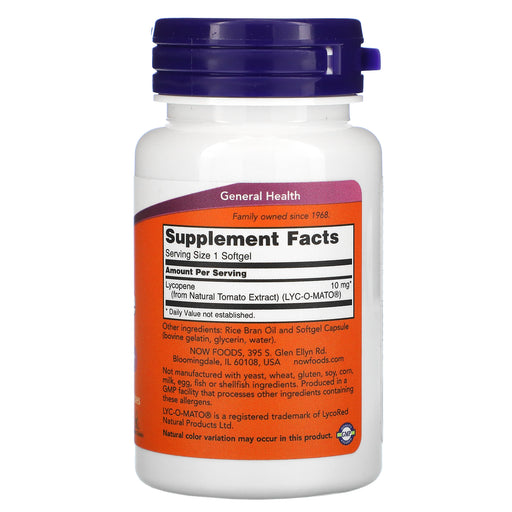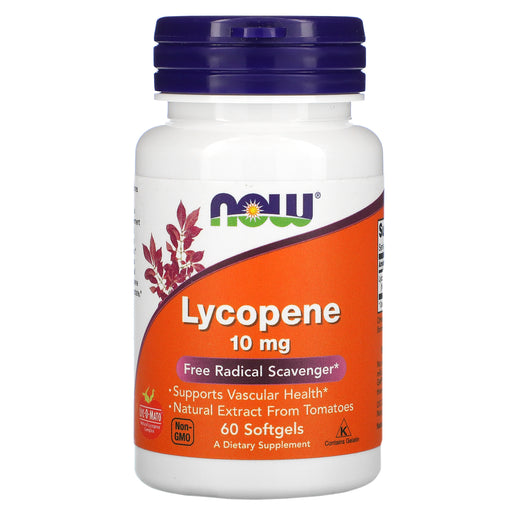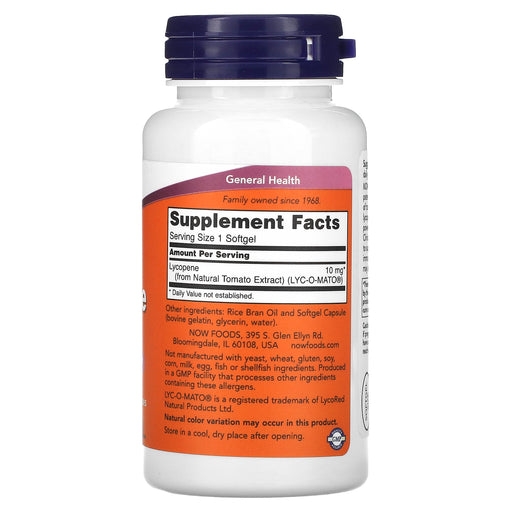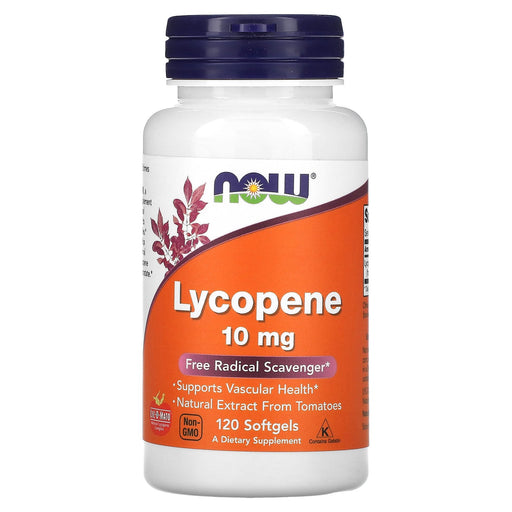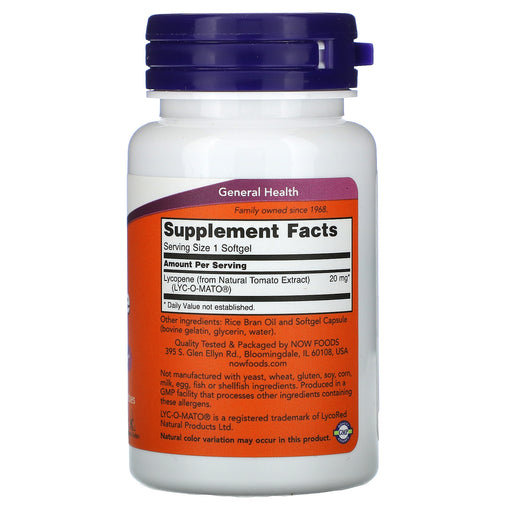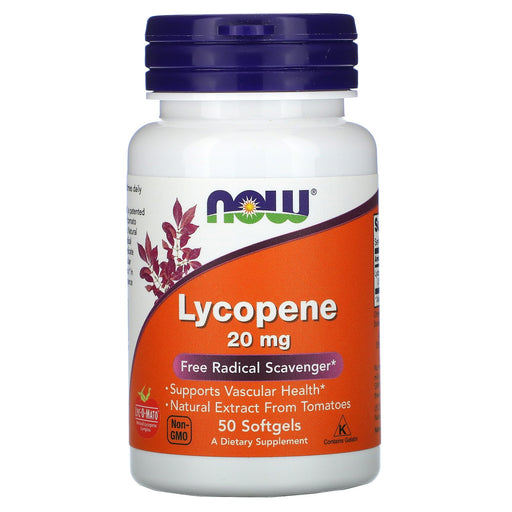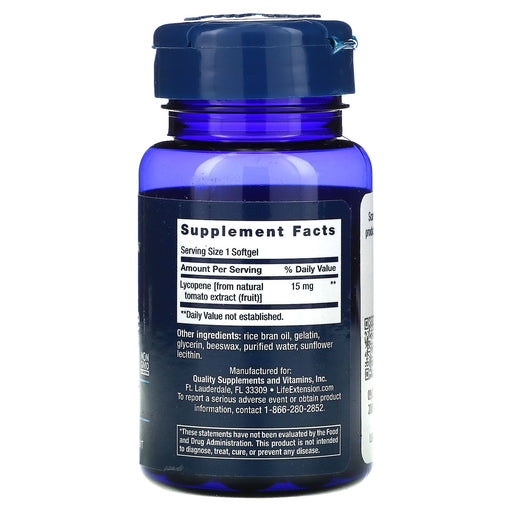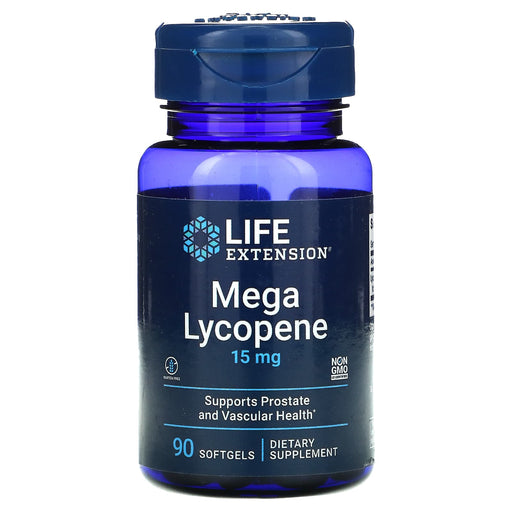
Harness the Antioxidant Power of Lycopene for Prostate Health, Heart Health, and Beyond
Lycopene is a potent antioxidant and carotenoid pigment that gives many fruits and vegetables, such as tomatoes, watermelons, and pink grapefruits, their vibrant red color. As one of the most powerful antioxidants found in nature, lycopene has gained significant attention for its potential to support prostate health, cardiovascular function, and overall well-being. By incorporating lycopene-rich foods or supplements into your wellness routine, you can tap into the protective benefits of this remarkable nutrient and support your body's natural defenses against oxidative stress and chronic disease.
The Science Behind Lycopene's Health Benefits
Lycopene's impressive health-promoting properties can be attributed to its unique chemical structure and potent antioxidant activity. Some of the key mechanisms behind lycopene's benefits include:
- Antioxidant Protection: As a highly effective scavenger of free radicals, lycopene helps to neutralize harmful reactive oxygen species (ROS) and protect cells from oxidative damage, which is a key contributor to chronic inflammation and age-related diseases.
- Anti-Inflammatory Effects: Lycopene has been shown to exhibit anti-inflammatory properties, helping to reduce levels of pro-inflammatory cytokines and support a healthy inflammatory response in the body.
- Cell Signaling Modulation: Some studies suggest that lycopene may help to modulate cell signaling pathways involved in cell growth, differentiation, and apoptosis (programmed cell death), supporting healthy cell function and reducing the risk of abnormal cell growth.
- Androgen Receptor Regulation: Lycopene has been found to interact with androgen receptors, which play a role in the development and progression of prostate health issues. By modulating androgen receptor activity, lycopene may help to support healthy prostate function.
- Endothelial Function Support: Lycopene has been shown to support healthy endothelial function, promoting the dilation of blood vessels and supporting healthy blood flow, which is crucial for maintaining optimal cardiovascular health.
The Potential Health Benefits of Lycopene
The potent antioxidant and anti-inflammatory properties of lycopene have been linked to a wide range of potential health benefits, supporting various aspects of overall well-being. Some of the key benefits of lycopene include:
- Prostate Health Support: Numerous studies have investigated the potential role of lycopene in supporting prostate health, with some research suggesting that higher intake of lycopene may be associated with a reduced risk of prostate health issues and improved markers of prostate function.
- Cardiovascular Health: Lycopene's ability to support healthy endothelial function, reduce oxidative stress, and promote a healthy inflammatory response may help to support optimal cardiovascular health and reduce the risk of heart disease.
- Skin Health and UV Protection: As a potent antioxidant, lycopene may help to protect the skin from oxidative damage caused by UV radiation, promoting healthy skin aging and reducing the risk of sun-related skin damage.
- Bone Health: Some studies suggest that lycopene may help to support healthy bone metabolism and reduce the risk of age-related bone loss, particularly in postmenopausal women.
- Immune Function: The antioxidant and anti-inflammatory properties of lycopene may help to support healthy immune function and enhance the body's natural defenses against pathogens and disease.
Choosing the Right Lycopene Supplement
While lycopene is found naturally in a variety of foods, particularly cooked tomatoes and tomato products, many people may benefit from supplementation to achieve optimal levels. When selecting a lycopene supplement, it's essential to choose a high-quality product from a reputable brand. Look for supplements that:
- Provide a clinically effective dosage of lycopene, typically ranging from 10mg to 30mg per day
- Use natural, bioavailable forms of lycopene, such as those derived from tomato extract or other lycopene-rich sources
- Are manufactured in GMP-certified facilities to ensure purity, potency, and safety
- Are free from unnecessary additives, fillers, and allergens
- Are third-party tested for quality and purity
As with any new supplement, it's essential to consult with a healthcare professional before starting lycopene supplementation, especially if you have a pre-existing health condition or are taking medications.
Related Vitamins and Supplements
While lycopene is a powerful antioxidant on its own, certain vitamins and supplements can complement its benefits and support overall health and well-being. Some relevant options to consider alongside lycopene include:
- Vitamin C: This antioxidant vitamin works synergistically with lycopene to protect cells from oxidative stress and support healthy immune function and skin health.
- Vitamin E: Another potent antioxidant, vitamin E helps to protect cell membranes from oxidative damage and may enhance the beneficial effects of lycopene.
- Selenium: This essential mineral supports healthy prostate function and has been shown to work synergistically with lycopene to promote optimal prostate health.
- Omega-3 Fatty Acids: These anti-inflammatory fats support cardiovascular health, immune function, and overall well-being, complementing the health-promoting benefits of lycopene.
Experience the Antioxidant Power of Lycopene
At Health Orchard, we are dedicated to providing our customers with the highest quality lycopene supplements to support prostate health, cardiovascular function, and overall well-being. Our carefully curated selection features lycopene products from trusted brands, formulated with pure, bioavailable ingredients for optimal efficacy and safety.
Whether you're looking for supplement to support healthy prostate function, promote cardiovascular health, protect your skin from UV damage, or simply harness the antioxidant power of this remarkable nutrient, our lycopene supplement collection has the perfect product to meet your needs.
Witness the natural health-promoting potential of lycopene and experience the difference it can make in your journey towards optimal wellness and vitality. Browse our selection today and take the first step towards nourishing your body with the potent antioxidant protection of this vibrant carotenoid.
Frequently Asked Questions about Lycopene
1. What are the benefits of taking Lycopene?
Lycopene, a potent antioxidant found primarily in tomatoes and other red fruits and vegetables, offers several potential health benefits:
- Promotes heart health: May reduce the risk of heart disease by lowering LDL (bad) cholesterol and blood pressure
- Supports prostate health: May help slow the progression of benign prostatic hyperplasia (BPH) and reduce the risk of prostate cancer
- Protects skin from sun damage: Acts as a natural sunscreen and may help prevent sunburn and premature skin aging
- Boosts immune function: Helps strengthen the body's defense against infections and diseases
- Reduces inflammation: May help alleviate inflammation associated with various chronic health conditions
2. What is lycopene used to treat?
Lycopene supplements are commonly used to support various aspects of health and to help treat or prevent certain conditions:
- Prostate health: Lycopene may help slow the progression of benign prostatic hyperplasia (BPH) and reduce the risk of prostate cancer
- Heart health: May help lower LDL (bad) cholesterol, reduce blood pressure, and decrease the risk of heart disease
- Skin health: Protects the skin from sun damage, premature aging, and may help treat sunburn
- Infertility: Some studies suggest that lycopene may improve sperm quality and motility in men with infertility
- Metabolic syndrome: May help regulate blood sugar, reduce inflammation, and improve insulin sensitivity in people with metabolic syndrome
While lycopene supplements show promise in supporting these health conditions, more research is needed to fully understand their effectiveness and long-term benefits.
3. What's the best lycopene supplement?
The best lycopene supplement may vary depending on individual needs and preferences, but some factors to consider when choosing a high-quality product include:
- Dosage: Look for supplements that provide a clinically-effective dose of lycopene, typically ranging from 10-30 mg per serving
- Form: Lycopene supplements are available in softgels, capsules, or tablets, so choose a form that you find easy to take consistently
- Bioavailability: Some supplements may include ingredients that enhance the absorption and bioavailability of lycopene, such as olive oil or phospholipids
- Brand reputation: Opt for reputable brands that follow good manufacturing practices (GMP) and undergo third-party testing for purity and potency
Some well-regarded lycopene supplements include:
- Jarrow Formulas Lyco-Sorb
- NOW Foods Lycopene
- Life Extension Mega Lycopene Extract
4. What is the best source of lycopene?
The best dietary sources of lycopene are tomatoes and tomato-based products, as well as other red fruits and vegetables:
- Tomatoes (especially cooked or processed tomatoes, such as tomato sauce, paste, and ketchup)
- Watermelon
- Pink grapefruit
- Guava
- Papaya
- Red bell peppers
Lycopene is also fat-soluble, so consuming these foods with a source of healthy fat, such as olive oil or avocado, can further enhance its absorption. For those who struggle to obtain enough lycopene through diet alone, lycopene supplements can be a convenient alternative.
5. Who should avoid Lycopene?
While lycopene is generally considered safe for most people when consumed through food sources or taken as a supplement in recommended doses, some individuals should exercise caution or avoid lycopene supplements:
- Pregnant and breastfeeding women: Due to limited safety data, it is best to avoid lycopene supplements during pregnancy and lactation
- Individuals with low blood pressure: Lycopene may further lower blood pressure, so those with already low blood pressure should consult their healthcare provider before taking supplements
- People taking certain medications: Lycopene may interact with some medications, such as blood thinners or blood pressure-lowering drugs, so it is essential to discuss potential interactions with a healthcare professional
- Those with a tomato or lycopene allergy: Although rare, some people may experience allergic reactions to tomatoes or lycopene supplements
6. Is lycopene good for your prostate?
Yes, lycopene is particularly beneficial for prostate health. Several studies suggest that lycopene may help:
- Reduce the risk of prostate cancer: Higher intake of lycopene-rich foods or supplements may be associated with a lower risk of developing prostate cancer
- Slow the progression of benign prostatic hyperplasia (BPH): Lycopene may help reduce the enlargement of the prostate gland, a common condition in older men that can cause urinary symptoms
- Improve prostate-specific antigen (PSA) levels: Some research indicates that lycopene supplementation may help lower PSA levels, a marker of prostate health and potential prostate cancer risk
- Alleviate symptoms of prostatitis: Lycopene's anti-inflammatory properties may help reduce the symptoms of prostatitis, an inflammation of the prostate gland
7. Which vitamin is best for the prostate?
Several vitamins and nutrients play important roles in maintaining prostate health, but some of the most beneficial ones include:
- Vitamin D: Helps regulate cell growth and differentiation in the prostate, and low levels may be associated with an increased risk of prostate cancer
- Vitamin E: An antioxidant that helps protect prostate cells from oxidative damage and may reduce the risk of prostate cancer
- Zinc: Plays a crucial role in prostate function and may help reduce the risk of benign prostatic hyperplasia (BPH) and prostate cancer
- Selenium: Another antioxidant that may help lower the risk of prostate cancer and improve overall prostate health
- Lycopene: A potent antioxidant that may help slow the progression of BPH and reduce the risk of prostate cancer
Consult with a healthcare professional to determine which vitamins and supplements may be most beneficial for your individual needs.


